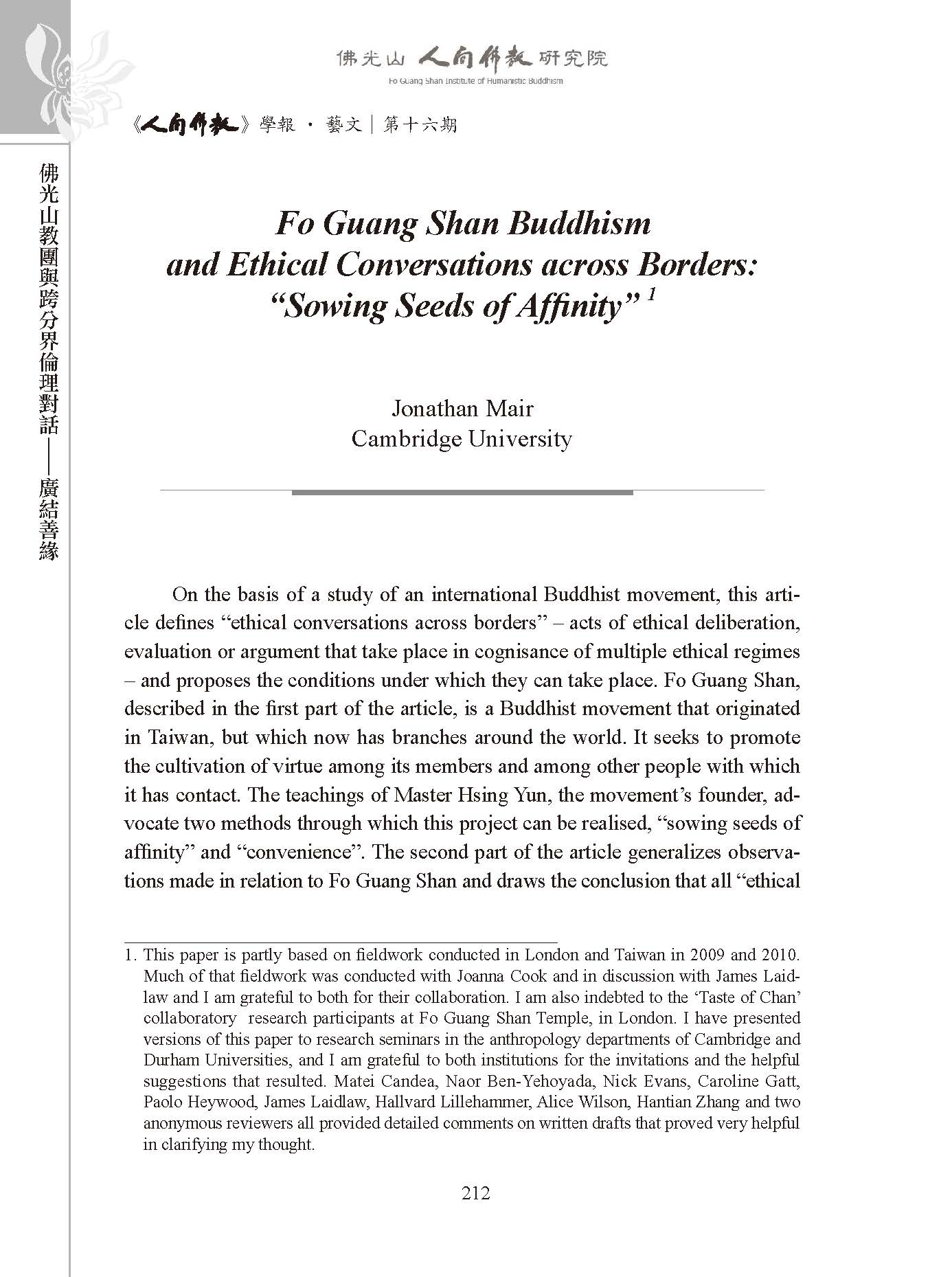
|
Fo Guang Shan Buddhism and Ethical Conversations across Borders: “Sowing Seeds of Affinity”
分類
論文
期別
《人間佛教學報‧藝文》第16期
作者
Jonathan Mair
單位職稱
Cambridge University
其他名稱
佛光山教團與跨分界倫理對話——廣結善緣
編者
妙凡、蔡孟樺主編
摘要
On the basis of a study of an international Buddhist movement, this article defines “ethical conversations across borders” – acts of ethical deliberation, evaluation or argument that take place in cognisance of multiple ethical regimes – and proposes the conditions under which they can take place. Fo Guang Shan, described in the first part of the article, is a Buddhist movement that originated in Taiwan, but which now has branches around the world. It seeks to promote the cultivation of virtue among its members and among other people with which it has contact. The teachings of Master Hsing Yun, the movement’s founder, advocate two methods through which this project can be realised, “sowing seeds of affinity” and “convenience”. The second part of the article generalizes observations made in relation to Fo Guang Shan and draws the conclusion that all “ethical conversations across borders” require two things, namely, the identification of similarities or “affinities”, and an account of difference that stipulates the units between which the conversation is to be carried on.
引文
Jonathan Mair, " Fo Guang Shan Buddhism and Ethical Conversations across Borders: “Sowing Seeds of Affinity”, " 《人間佛教學報‧藝文》第16期 (2018): 212-237
全文下載











